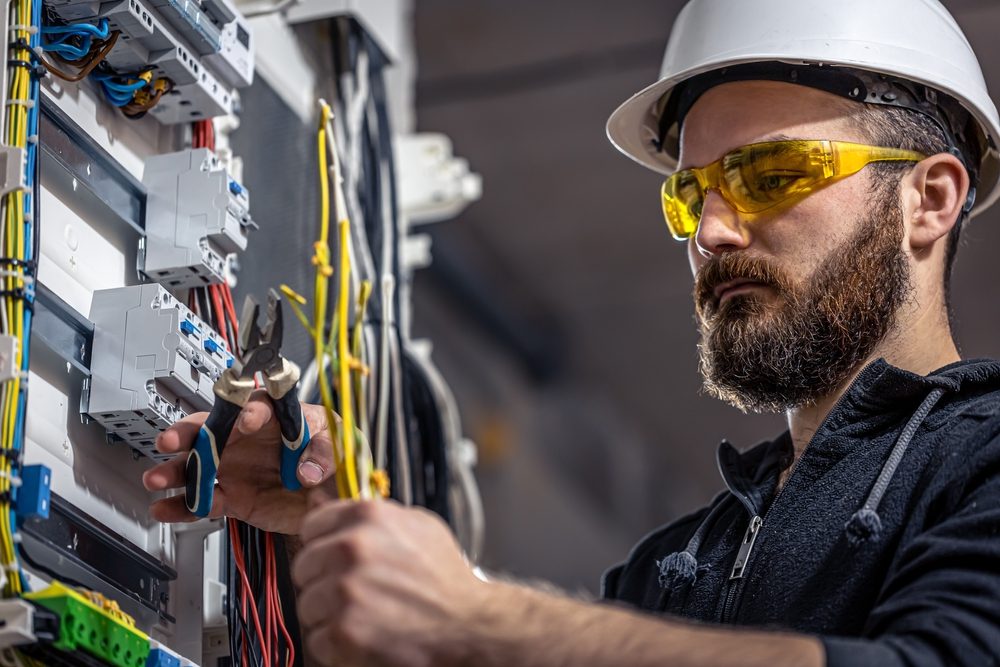What Is The Difference Between An Electrician And An Electrical Installer?
When it comes to working with electricity, two terms often come up: electrician and electrical installer. While they may seem similar, there are key differences between the two professions. In this article, we will break down these differences, helping you understand who to call for your electrical needs. Whether you're in Charlotte, NC or elsewhere, knowing what each role entails can guide you in the right direction.
What Is The Difference Between An Electrician And An Electrical Installer?
At first glance, the terms "electrician" and "electrical installer" might appear interchangeable. But they serve different functions within the field of electrical work. An electrician is typically trained to handle a wide range of tasks involving electrical systems. This includes installation, maintenance, and repair of wiring systems for homes, businesses, and industrial sites. They often deal with complex issues like circuit design and troubleshooting.
On the other hand, an electrical installer usually focuses primarily on installing electrical equipment and systems based on plans provided by engineers or architects. Their work is more specialized compared to that of electricians. They may not engage in repairs or maintenance as frequently as electricians do.
Understanding Electricians
Electricians are professionals who require a high level of education and training. They often complete an apprenticeship program that combines classroom instruction with hands-on experience. This training equips them with the skills needed to ensure safety when working with electricity.

Types of Electricians
Residential Electricians
These electricians focus on home installations and repairs. They work on lighting fixtures, outlets, and circuit breakers.
Commercial Electricians
Commercial electricians deal with larger projects in business settings such as offices or retail stores.
Industrial Electricians
These professionals work in factories or large plants where they maintain heavy machinery and large-scale electrical systems.
Duties of an Electrician
Electricians perform various tasks including:

- Installing new wiring
- Repairing faulty circuits
- Upgrading electrical panels
- Ensuring compliance with local codes
They have a critical role in maintaining safety standards within any building's electrical system.
Understanding Electrical Installers
Electrical installers focus specifically on setting up electrical systems rather than maintaining them. Their job is usually straightforward: follow blueprints to install wiring and equipment like lights or outlets.
Types of Electrical Installers
Low Voltage Installers
These installers work on lower voltage systems such as telecommunications or security systems.
High Voltage Installers

Duties of an Electrical Installer
Electrical installers typically handle:
- Installing conduit for wiring
- Mounting fixtures
- Connecting appliances to power sources
Their work is crucial during the construction phase of new buildings or renovations.
Educational Requirements
Both professions require specific educational paths:
-
Electricians generally need several years of training through apprenticeships that include both classroom education and practical experience.
-
Electrical installers, while also needing some form of training, may not require as extensive a background but still benefit from understanding basic electrical principles.
Licensing Requirements
In most states, electricians must obtain a license after passing an exam that tests their knowledge on local codes and practices. On the other hand, licensing for electrical installers can vary based on their specialization but generally requires less formal certification than electricians.
Safety Protocols in Both Fields
Safety is paramount when dealing with electricity:
-
Electricians must adhere to strict guidelines to protect themselves and others from hazards.
-
Electrical installers need to follow established protocols while installing equipment to ensure reliability and prevent future issues.
Job Outlook for Electricians vs Electrical Installers
The job market is favorable for both professions:
-
According to labor statistics, the demand for electricians continues to grow as more buildings require modern electric installations.
-
Electrical installers also see steady demand due to ongoing construction projects across many sectors.
Pay Scale Differences
Pay can vary greatly between these two roles based on experience levels:
| Profession | Average Salary (Annual) | |------------------------|-------------------------| | Electrician | $56,180 | | Electrical Installer | $43,000 |
This table provides a quick overview of potential earnings for each profession.
Common Misconceptions About Each Role
It’s easy for people outside the industry to confuse these roles due to their overlapping nature:
Many think all electricians can also install equipment; however, not all have specialized skills in installation.
Some assume that all installations require an electrician; however, many tasks can be performed by trained installers without needing a licensed electrician present.
How To Choose Between An Electrician And An Electrical Installer?
If you're unsure about which professional you need for your project in Charlotte, NC:
Assess the scope of your project: If it involves repairs or adjustments beyond typical installations—call an electrician.
For straightforward installation tasks like putting up new light fixtures—an installer should suffice.
Where To Find Electrical Services Near You?
Looking for "electrical companies near me"? Here are tips:
Choosing local companies ensures quicker response times for emergencies!
FAQs
1. What does an electrician do?
Electricians install and repair wiring systems while ensuring safety compliance according to regulations.
2. Are electrical installers required to be licensed?
Licensing requirements vary; some may need certification while others do not depending on state laws.
3. Can I hire an installer instead of an electrician?
Yes! For simple installations without complex requirements—installers are qualified professionals who can help you out efficiently.
4. How long does it take to become certified?
Typically around four years for electricians through apprenticeships; fewer years may suffice for installers depending on specialization needs!
5. Do I need permits before hiring either service?
Yes! Check local building codes; most renovations necessitate permits regardless if done by an electrician or installer!
6. What's the average cost difference between hiring each?
Electricians generally charge higher rates due to their extensive training compared with those focused solely on installations!
Conclusion
Understanding "What Is The Difference Between An Electrician And An Electrical Installer?" helps you make informed decisions regarding your electrical needs at home or work spaces alike! Whether you're planning renovations or simply looking into upgrades—knowing whom exactly you should call saves time while ensuring quality results too! If you're ever stuck deciding between these two professionals don't hesitate reaching out directly—we're here ready assist whenever needed! Always remember: safety first means choosing wisely!